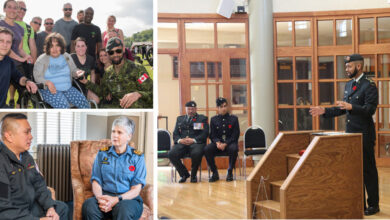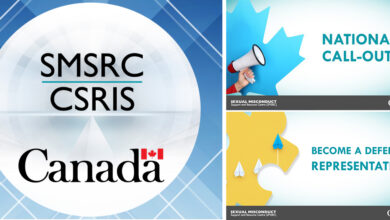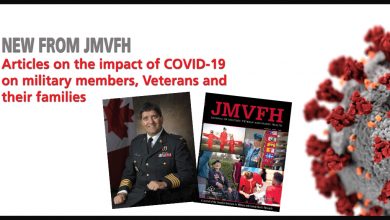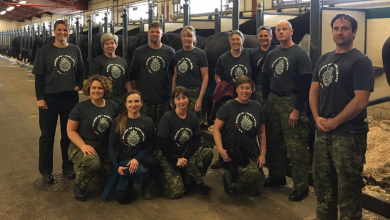Helpful Resources
Can Praxis, No Hug-A-Horse Program
The value of service dogs in helping people cope or move forward with Post Traumatic Stress Disorder or Operational Stress Injuries has been established. New to scene is Can Praxis, a program using horses to get people communicating.
Can Praxis is a three-phase equine assisted program that trains participants to effectively manage conflict. Offered at a private facility in Rocky Mountain House, Alberta, veterans with PTSD or an OSI and their spouse, significant other, friend or family member are welcome to attend.
It’s all in the name. ‘Can’ signifies Canada’s can-do attitude and ‘Praxis’ means putting theory into practice. Can Praxis uses walk-along exercises with horses as a training aid.
“We are not horse trainers trying to train people. We are people trainers using horses. This is not a hug-a-horse program. Fifty-percent of phase one is spent in the classroom and fifty-percent is spent with the horses,” said co-founder Steve Critchly. retired military member, international mediator, facilitator, negotiator, and trainer.
Critchly and Jim Marland, Equine Assisted Learning Facilitator and registered psychologist, offered the first Can Praxis program in February, 2013.
Horses are used for three reasons, the first because horses are social animals. They thrive, and crave social interaction. Secondly, horses have a built-in chain of command. They naturally know who is the leader and who is the follower. Finally, horses have evolved as ‘flight’ animals. They are hyper vigilant and very sensitive to their surroundings.
“If you approach a horse aggressively they will back away. If you approach them passively they will take advantage of you and not listen to you. Horses instinctually determine if a person is worth learning about, or worth their effort. If they determine you are someone they want to get to know they will approach you,” said Critchly.
If a horse can sense all these things in a vet with PTSD or an OSI, it only makes sense that their family can sense these things to. Through the horse’s reactions the equine facilitator is able to let participants see what they bring to their conversations even before they have even opened their mouths to speak. The horses are used as feedback machines.
“You can lie to people but you can’t fool a horse, and that’s why we use them. The horse provides instant honest feedback on how individuals approach, sit and communicate,” said Critchly.
Role reversal is used too so the partner of the veteran can see what stressors they are bringing into the relationship as well.
Phases are run once a month as funding permits. Each phase lasts three days and is offered free to participants. Airfare, food, lodging, and as needed childcare costs and kennel fees for pets are covered. Funding for the program remains grass roots, the vast majority of coming from Wounded Warriors Canada and the Glenfiddich Scotch Whiskey Company.
For more information on attending a Can Praxis program or to make a donation please visit www.canpraxis.com








